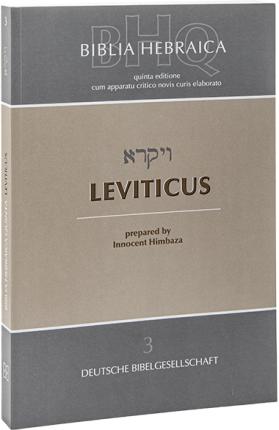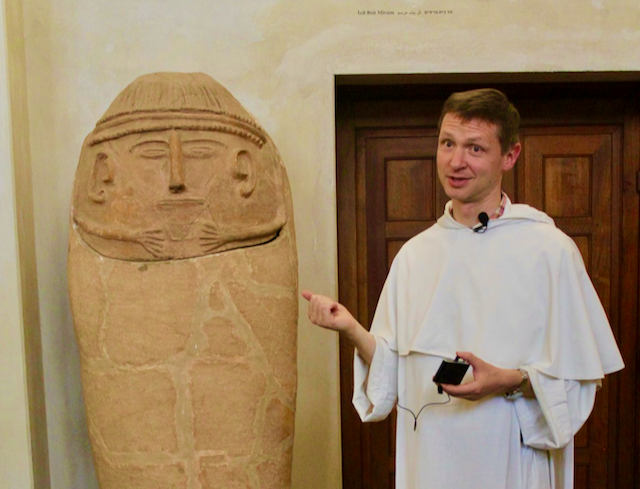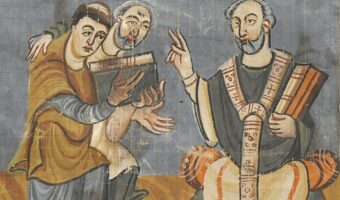The Bible in its Traditions provides its readers with notes classified according to clear categories. They oblige the authors to be as specific and precise as possible in their judgements. Other contemporary scientific and editorial programmes such as Biblia Hebraica Quinta (BHQ) share the same tendencies.
At present, the main edition of the Hebrew text on which studies and translations are based is the Biblia HebraicaStuttgartensia, BHS. As Stuttgartensia is the fourth critical edition, the next project is called quinta, meaning “the fifth”. One of the most important new features of the BHQ are the “characterisations”, i.e. the editors must categorise each variant of the critical apparatus.
- For example, they need to distinguish between variants produced by earlier translators and variants that reflect a different original text. In the Bible in its Traditions, this fundamental distinction is made when the editor decides to place the note concerning the variant in the category Text – Criticism of the text or in the category Reception – Comparison of versions.
For the past two years, the director of the editorial board of the Bible in its traditions, fr. Łukasz Popko, has also been working in the editorial project Biblia Hebraica Quinta, or : BHQ.

Brother Łukasz is responsible for the Second Book of Kings. He took over this work from Carmel McCarthy, who died last year. As the team working on the BHQ had been at work for decades, it was essential for the coherence of the project to enter into its methodology and editorial praxis. The time of pandemics has forced many scholarly projects to become more what The Bible in its Traditions has always been: an online workshop.
Łukasz has participated in the weakly virtual sessions of larger and smaller teams working on similar texts. For both Books of Kings, Adrian Schenker OP (University of Fribourg, Switzerland) was for years the editor and Stephen Ryan OP (Dominican House of Studies) in charge of the First Book of Kings. 2 Kings, as well as the whole composition of Samuel-Rois, presents a particular textual complexity. The ancient versions are of particular importance: the Old Greek, the Syrohexapla and the Old Latin translations which, in places, differ significantly from the Massoretic text.

Once a year, the BHQ team meets in Stuttgart thanks to the sponsorship of the publisher, Deutsche Biebelgesellschaft. This is an opportunity to take stock of the progress of work, scholarly exchanges, editorial decisions and, last but not least, some friendly encounters. The project is also present in the wider academic world, for example this year at the 24th Congress of the International Organisation for Old Testament Studies, in Zurich from 8 to 12 August.
2 Kings, as well as the whole composition of Samuel-Kings, has particular textual complexity. Of particular importance are the ancient versions: the Old Greek, Syrohexapla [see below, gallica.bnf.fr], and Old Latin translations which at places differ significantly from the Masoretic text.





